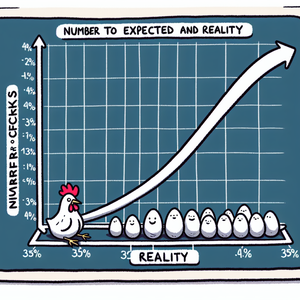Empowering Tomorrow: The Role of Youth Development Specialists in Shaping Future Leaders

Youth development specialists are professionals trained to support and nurture the growth of young individuals. Their influence extends beyond traditional teaching; they act as mentors, coaches, and role models who provide guidance in various aspects of life, including personal development, education, and career readiness. The work of these specialists is vital in instilling leadership qualities and resilience in youth, equipping them with the tools necessary to navigate an increasingly complex world.
Innovative Approaches to Leadership Development
One of the standout features of youth development specialists is their use of innovative methods to engage young people. They often employ experiential learning techniques that encourage youth to step out of their comfort zones. Programs that involve team-building exercises, outdoor adventures, and community service projects not only foster collaboration and problem-solving skills but also build resilience and self-confidence—essential traits for any leader.
Real-World Example: Outdoor Leadership Programs
Consider a nonprofit organization that runs an outdoor leadership program for at-risk youth. Participants engage in activities like rock climbing, wilderness survival, and team challenges. Through these experiences, they learn to trust their instincts, work collaboratively, and lead others. Feedback from past participants reveals that many have gone on to take leadership roles in school clubs and community organizations, attributing their growth to the skills and confidence gained during the program. Such experiential learning transforms young individuals into proactive leaders who are capable of thriving amidst challenges.
Fostering a Growth Mindset
Youth development specialists also emphasize cultivating a growth mindset—a concept popularized by psychologist Carol Dweck. This mindset encourages young people to view challenges as opportunities for growth rather than insurmountable obstacles. Specialists provide tools and strategies that help youth develop resilience, such as setting achievable goals, reflecting on failures, and celebrating successes. These practices not only empower youth but also prepare them to face the inevitable setbacks they will encounter in both personal and professional realms.
Supporting Evidence: Research on Growth Mindset
Research has shown that individuals with a growth mindset are more likely to persevere through difficulties and achieve their goals. A study published in the journal Psychological Science found that students who were taught to adopt a growth mindset showed significant improvements in their academic performance. This evidence underscores the far-reaching implications of fostering a growth mindset among youth, as it enables them to approach challenges with a positive and proactive attitude.
Building Community Connections
Another vital aspect of the work carried out by youth development specialists is their ability to connect young individuals with their communities. By encouraging participation in local initiatives and fostering relationships with community leaders, specialists help youth understand their role within a larger societal context. This connection not only enhances their leadership skills but also instills a sense of responsibility and civic duty.
Case Study: Community Engagement Initiatives
A notable example is a youth-led initiative focused on environmental sustainability, where participants collaborated with local organizations to promote recycling and conservation efforts. Through this program, young people developed leadership skills while contributing positively to their community, showcasing the profound impact of engaged youth. Such initiatives not only empower youth but also make tangible contributions to society, demonstrating the interdependence of leadership and community engagement.
As we look toward the future, the role of youth development specialists in shaping the leaders of tomorrow cannot be overstated. Through innovative approaches, fostering a growth mindset, and building community connections, these specialists are empowering young individuals to emerge as confident, capable leaders. By investing in youth development today, we are paving the way for a brighter, more resilient tomorrow—one where the leaders of our communities are equipped to tackle the challenges that lie ahead.
Youth Program Coordinator
Nonprofits, educational institutions, community centers
Core Responsibilities
Design and implement engaging programs that promote leadership and personal development among youth.
Coordinate logistics for workshops, community service projects, and team-building activities.
Foster partnerships with local organizations to enhance program offerings and community involvement.
Required Skills
Strong organizational and project management skills.
Excellent communication and interpersonal abilities for engaging with youth and community stakeholders.
Experience in program evaluation and data collection to assess program effectiveness.
Life Skills Coach
Schools, community organizations, private coaching practices
Core Responsibilities
Provide one-on-one coaching to youth on topics such as goal-setting, decision-making, and conflict resolution.
Facilitate group workshops that promote self-esteem, resilience, and interpersonal skills.
Develop personalized action plans to help youth overcome challenges and achieve their objectives.
Required Skills
Background in psychology, counseling, or social work.
Strong motivational and mentoring abilities.
Certifications in coaching methodologies or youth development programs are a plus.
Outdoor Education Instructor
Summer camps, outdoor education centers, nonprofits focused on youth development
Core Responsibilities
Lead outdoor activities and experiential learning programs that challenge and inspire youth.
Teach skills such as teamwork, leadership, and environmental stewardship through hands-on experiences.
Assess participant progress and provide feedback to enhance personal and group development.
Required Skills
Proficiency in outdoor skills and safety protocols.
Experience working with diverse groups of youth in outdoor settings.
Certification in wilderness first aid or CPR is often required.
Community Engagement Specialist
Local government agencies, nonprofit organizations, civic groups
Core Responsibilities
Develop and implement strategies to connect youth with community service opportunities and civic engagement initiatives.
Collaborate with local leaders and organizations to promote youth involvement in community projects.
Evaluate the impact of community engagement efforts on youth leadership development.
Required Skills
Strong networking and relationship-building skills.
Ability to communicate effectively with diverse audiences.
Experience in community organizing or public relations is beneficial.
Social and Emotional Learning (SEL) Facilitator
Schools, educational nonprofits, mental health organizations
Core Responsibilities
Design and deliver SEL curricula that promote emotional intelligence, resilience, and interpersonal skills in youth.
Conduct training sessions for educators and youth leaders on implementing SEL strategies.
Monitor and assess the social-emotional development of participants through observations and feedback.
Required Skills
Knowledge of psychological principles related to social and emotional learning.
Experience in educational settings, ideally with a focus on youth programming.
Certification in SEL frameworks or methodologies can enhance qualifications.


